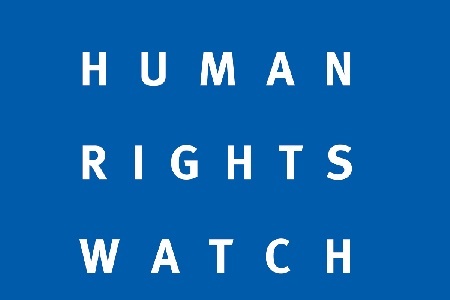
The Robert F Kennedy Centre recognises the significant advances made towards the protection of human rights in Zimbabwe’s new constitution.
Sunday Opinion by RFK Center
A progressive Bill of Rights that accurately reflects international consensus on the importance of both protecting and promoting human rights — from political to socio-economic and the right to development — is particularly encouraging and most welcome.
The centre looks forward to the timely implementation of the rights guaranteed in this important document.
The main purpose behind the Global Political Agreement (GPA) was to both induce and establish necessary reforms in Zimbabwe, thereby avoiding a repeat of the bloodshed witnessed in 2008-9 and lay the foundation for credible elections.
Though the agreement was signed over four years ago, the necessary reforms that were expected to address a host of pressing institutional and human rights issues have either not been introduced or are not being implemented. President Robert Mugabe continues to command an unchecked monopoly on the military and security forces.
In addition, amendments to repressive laws — including the Access to Information and Protection of Privacy Act (Aippa); the Public Order and Security Act (Posa); the Criminal Law (Codification and Reform) Act; and the Private Voluntary Organisation Act (PVO), which places onerous registration requirements on NGOs — have stalled, with little chance of reform before elections.
The work of civil society in Zimbabwe is critical for the upcoming elections. Civil society allows coordination of public interests and concerns and also helps to maintain the free flow of information and association.
- Chamisa under fire over US$120K donation
- Mavhunga puts DeMbare into Chibuku quarterfinals
- Pension funds bet on Cabora Bassa oilfields
- Councils defy govt fire tender directive
Keep Reading
These elements of society are essential building blocks for political freedom and integral to foster a sustainable democracy.
The pattern of intimidation, violence, and detention against ordinary employees of civil society organisations and human rights leaders is a serious obstacle that undermines the current electoral process.
Since August 2012 upwards, 20 civil society organisations have been targeted by the police. Together with Zanu PF, the ZRP has threatened to deregister organisations that “deviate from their mandate”.
The clampdown on civic organisations that are engaged in voter registration and mobilisation campaigns is particularly worrisome.
Organisations such as ZimRights and youth groups like NYDT have been continuously raided, their meetings disrupted, and their leaders arrested on spurious grounds, often on the pretext of “fabricating voter registration documents” and for conducting “activities that threaten national security”.
The arbitrary arrest and unlawful detention of renowned lawyer Beatrice Mtetwa on March 16 is an example of the deteriorating rule of law in Zimbabwe. Mtetwa was charged with obstruction of justice after demanding a search warrant at a client’s home.
Mtetwa would ultimately spend eight days in a cramped cell, despite a High Court ruling that ordered her release. Mtetwa was ultimately granted bail on March 25.
The violations of the rights to freedom of expression and access to information are an ongoing and grave concern in Zimbabwe. Last month, the ZRP “banned” shortwave radios, prompting raids on private homes and community radio stations like Radio Dialogue, which are working to raise levels of civic and political awareness in the lead up to elections.
Radio Dialogue was accused of “smuggling illegal goods” and for allegedly using radios to incite violence and disseminate propaganda.
Zimbabwe Peace Project (ZPP) was also raided by armed police, who confiscated a number of solar-powered, handheld radios and other office equipment, stating that ZPP was engaging in “espionage” and “activities that threatened national security”.
The systematic repression of civil society is in violation of international human rights obligations under the African Charter on Human and People’s Rights and the International Covenant for Civil and Political Rights (ICCPR).
The pattern of suppression, including the criminalisation of human rights defenders, represents clear violations of the rights to freedoms of expression, assembly, and association, and imperils the rights of all Zimbabweans to participate freely in the government of their country.
The authorities in Zimbabwe should not forget their commitments under the Sadc Principles and Guidelines Governing Democratic Elections, specifically Article 4, which stipulates that “human rights, democracy, and the rule of law are principles guiding the acts of its members.”
The African Commission on Human and People’s Rights recently called upon all states parties to “respect their obligations under the African Charter, in addition to other regional and international human rights conventions, and take all necessary measures to preserve and protect the credibility of the electoral process.”











